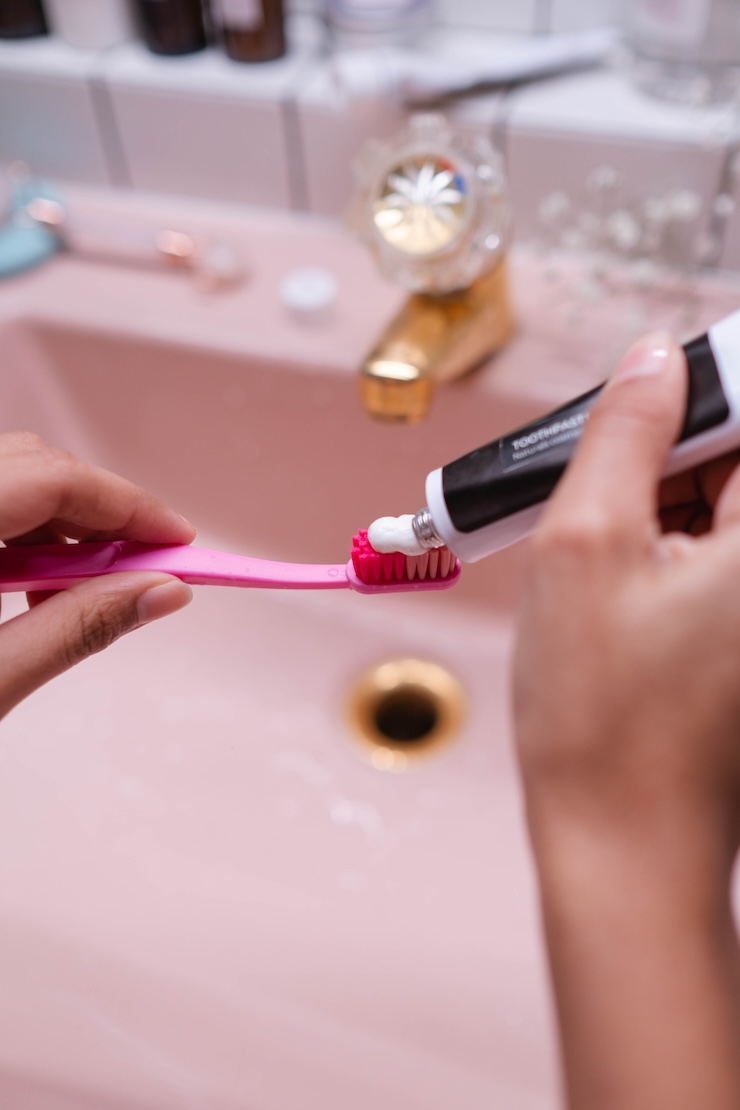Bleeding Gums
This sign is a red flag that something is amiss with your oral health. You must first confirm that your bleeding gums do not result from excessive pressure during brushing or flossing. Consistent bleeding during these two activities is a telltale sign that your oral health is compromised. It could be gingivitis or early-stage gum disease that requires immediate attention before things get out of hand. Bleeding gums may be caused by excessive plaque buildup on your teeth. Calcified plaque becomes tartar, ultimately increasing the risk of gum infections, resulting in bleeding gums. Plaque is a sticky film of bacteria, and as more is produced in your mouth, your risk of infection becomes higher. The best way to deal with this is to brush and floss regularly or at least twice daily. If plaque remains on your teeth after 72 hours, it hardens to form tartar, harming oral health.
Persistent Bad Breath
Halitosis is not just a nuisance as it causes social discomfort and can impact your self-confidence. This smell differs from the early morning breath after waking up and usually doesn’t disappear even after brushing your teeth. Chronic bad breath often indicates underlying health problems ranging from cavities to dental infections. Avoid underestimating it because untreated bad breath can impact your physical and mental well-being. Proactive measures like regular brushing with fluoride toothpaste can help manage this. Routine flossing can also eliminate persistent bad breath. Another noteworthy point is that a dry mouth can cause bacteria buildup, resulting in bad breath. Make an effort to stay hydrated to help combat this. If the issue persists, it would be advisable to consult a dental professional to identify the root of the problem. Sometimes, bad breath may be caused by poorly functioning kidneys, but only a medical professional can confirm that after a series of tests.
Unclean Retainers
Oral retainers play a specific role in your quest to keep your dentition in excellent shape, as they help hold your teeth in place to maintain correct alignment. However, retainers are not self-cleaning oral tools. They must be properly cleaned and maintained to eliminate bacteria growth. Unfortunately, infrequent cleaning of oral retainers makes them a breeding ground for bacteria which can also cause bad breath and other issues. Tooth decay can also occur in worst-case scenarios. This is why making effort to clean your oral retainers properly and frequently is important. It is also advisable to continue follow-up appointments with your dentist to ensure your retainers are doing their job. How do you keep them clean? Some users say baking soda and clean water can do the trick. Others soak them in white vinegar for ten minutes to eliminate bacteria. You can also clean them in a solution of mild dish soap and rinse with warm or cool water. The best thing, however, is to follow your orthodontist’s advice.
This is a contributed post.


1 comment
Great tips which should maintain our oral healthy which could cause other health issues.
Post a Comment